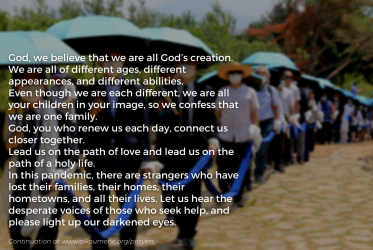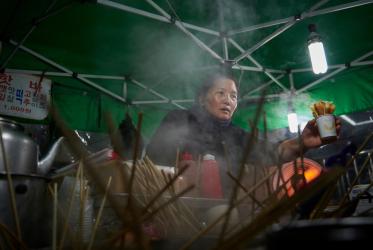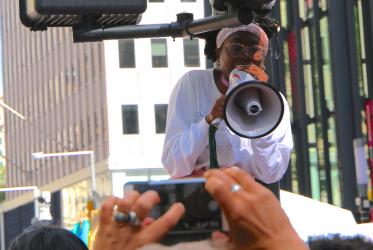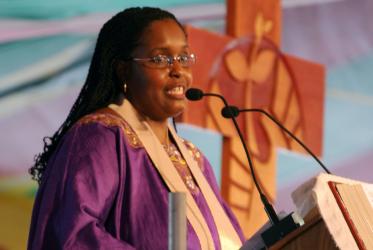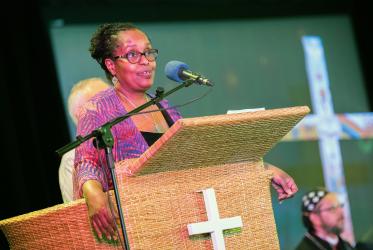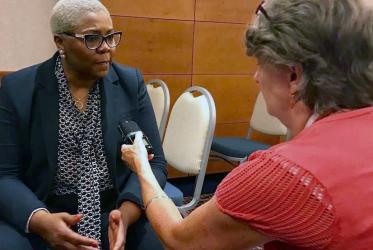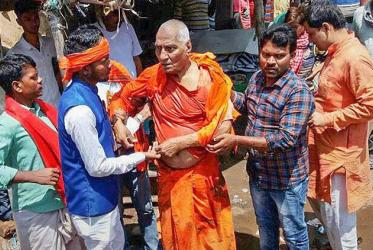Displaying 1 - 20 of 41
WCC organises event on “The Human Rights Situation in the Philippines”
18 September 2019
Dr Saïd Ailabouni: God is on the side of rejected, oppressed, occupied
12 September 2019
Latest gun violence in US poses challenges for churches
05 August 2019
WCC condemns massacre of farmers in Philippines
12 April 2019
Funeral celebrates life of Rev. Robina Winbush
26 March 2019
How can you help refugees?
11 October 2018
Rev. Traci Blackmon: people of faith must not be silent
21 September 2018
Unifying faiths in peace and harmony through dialogue
10 April 2018


